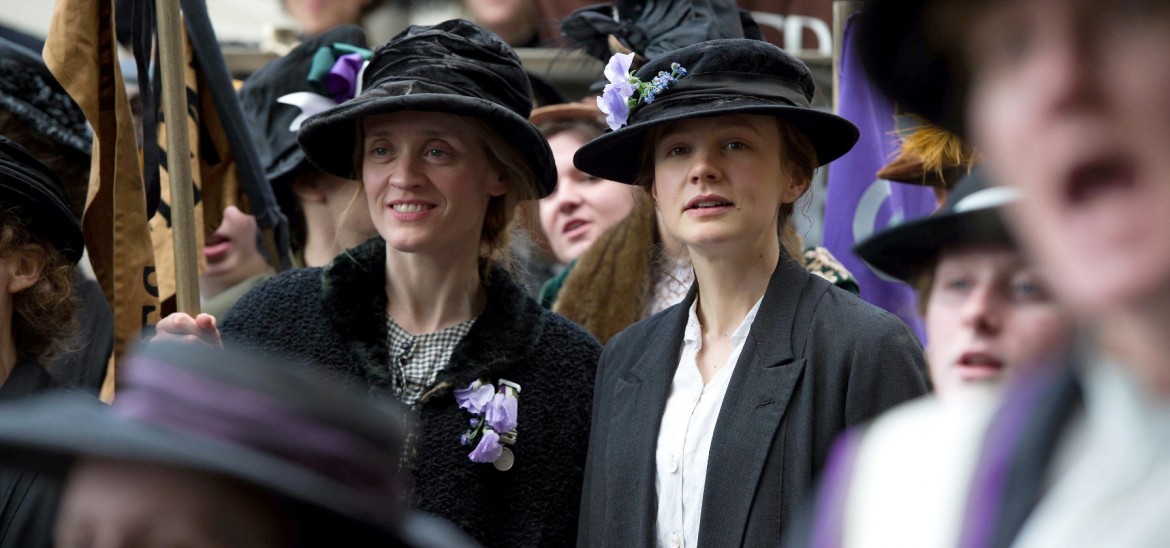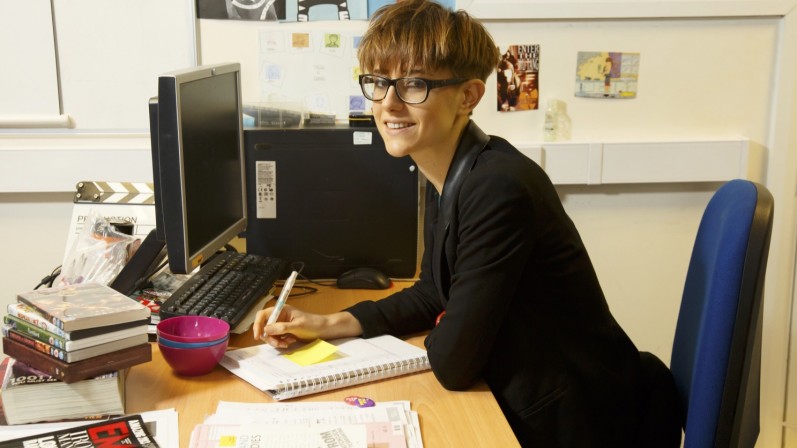Into Film Clubs
Find out everything you need to know about starting an Into Film Club.



The woman's suffrage movement took place across Britain during the late 19th and early 20th century, as people campaigned to end the disenfranchisement of women in society and allow them the vote.
Prominently associated with Emmeline Pankhurst and the Women's Social and Political Union (WSPU), their tactics ranged from marching and distributing pamphlets, to hunger strikes, vandalism and chaining themselves to railings to provoke arrest, but it was not until 1928 that all women over the age of 21 were given the right to vote.
Suffragette tells the story of the movement in East London, at a pivotal point where the fight moved from peaceful protest into more direct action. Told through the eyes of Maud, a working class factory worker, the film is an inspiring, often shocking account of a piece of history that surprisingly has never been told on film before, but remains relevant even to this day.
Lessons from history...
Mindful of sensitivities, director Sarah Gavron and screenwriter Abi Morgan spent a great deal of time researching archival footage in universities and libraries, poring over images, and reading historical testimony to get an accurate idea of what happened and - crucially - how events were viewed and experienced by ordinary citizens at the time. The filmmakers also tried to faithfully recreate the setting and feel of the period. This ranged from sourcing costumes that were appropriately aged (so they resembled the slightly ragged wardrobes people would have had at the time, rather than clothes simply made in the same time period), to becoming the first fiction film to shoot in the Houses of Parliament in Westminster, a location Sarah told us is not only very difficult to accurately recreate, but hugely symbolic and evocative.
Sarah became interested in film towards the end of high school. After completing an MA in filmmaking she was accepted onto the prestigious directing course at the National Film and Television School, where she was mentored by legendary British director Stephen Frears.
The collaborative process of the school - where students focus on designing, producing, cinematography, screenwriting or directing - was hugely important, allowing students to experiment and make mistakes. Since leaving the NFTS, Sarah has worked in both documentary and feature film. The combination of these two mediums proved massively useful when dealing with fictionalised versions of sensitive historical events such as those seen in Suffragette.
Having started off writing stage plays, Abi Morgan was initially too nervous to show them to anybody. After gaining some significant success in theatres across the country, Abi began writing television dramas, as well as her first screenplay - for Brick Lane which was also directed by Sarah. Since then she has written successful screenplays for The Iron Lady and The Invisible Woman amongst others. She gave our reporter some fantastic advice for any aspiring writers when we went along to chat with her.
As well as Sarah and Abi, it was very important to all involved that as many of the crew as possible were female, so the producers, costume designers, production designers and many other key roles were all filled by women. The film is also notable for the calibre of actors involved, even if their parts are smaller than they are used to. One notable example is Helena Bonham Carter, who is the great granddaughter of Herbert Asquith, the Prime Minister at the height of the suffrage movement and a staunch opponent of rights for women. Although Suffragette features some fantastic male actors, women are front and centre of this film and it is the appeal of stars like Carey Mulligan that will help drive audiences to watch it.
For the crucial role of Emmeline Pankhurst, it was clear that the filmmakers needed a big star, in order to capture the gravitas that Pankhurst would have had, inspiring women in the movement to take more direct action than they had previously. In a clever piece of casting, Meryl Streep - herself a passionate advocate for women in the film industry - plays Pankhurst. Despite only having one scene, her role is pivotal to events in the second and third acts. Having major stars involved in projects such as this is also crucial to help the filmmakers secure financing from traditionally risk-averse film studios and ensure that cinemas play the film when it is released.
The number of female filmmakers working today remains small. Statistics vary, but it is thought that just 4-12% of feature films are directed by women. Only one woman has ever won the Oscar for Best Director - Kathryn Bigelow for The Hurt Locker. It is important that films like Suffragette (and documentaries such as He Named Me Malala) find significant commercial audiences to prove that stories about women and made by women have a wide appeal, allowing for more female centric stories to be told and inspiring the next generations of filmmakers. Away from Hollywood, the increasing prominence of schemes like the Bechdel Test is also proving important in campaigning for diverse women's voices to be heard louder in film - just one of many ways in which Suffragette retains a topicality to our modern society.
The story of Suffragette is a tiny fraction of what actually took place during the long campaign to secure the vote. Like all historical struggles, the movement was vast and complex, transcending race, class, age and social barriers, as well as featuring a number of men. Although the film will hopefully pave the way for more stories to be told about the movement, the BFI have also produced an accompanying series of archive films, documenting the struggles as they were seen and experienced at the time, across the country. Remarkably vivid, they are an equally vital piece of filmmaking, helping to ensure that the suffrage movement does not get forgotten, or have its history distorted, while also provoking discussion and hopefully inspiring progress across the world, in the world of film and beyond.
Viewing 4 of 4 related items.

Get in touch with your article ideas for the News and Views section.